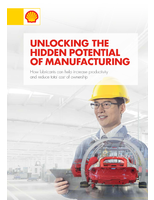Petroleum Standard identifies mid-level ethanol fuel protocols.
Press Release Summary:
ASTM D7794, Practice for Blending Mid-Level Ethanol Fuel Blends for Flexible-Fuel Vehicles with Automotive Spark-Ignition Engines, is first to identify protocols necessary to blend mid-level ethanol fuels at terminal and retail level that equal fuel quality and performance expected from fuels meeting other ASTM fuel specifications. Topics covered include selecting proper fuel components, formula use for various concentrations, QA program development, and handling information.
Original Press Release:
New ASTM Petroleum Standard is First to Identify Mid-Level Ethanol Fuels Protocols
W. CONSHOHOCKEN, Pa.-A new ASTM International specification is the first standard to identify the protocols necessary to blend mid-level ethanol fuels at the terminal and retail level that equal the fuel quality and performance expected from fuels meeting other ASTM fuel specifications.
The new standard, ASTM D7794, Practice for Blending Mid-Level Ethanol Fuel Blends for Flexible-Fuel Vehicles with Automotive Spark-Ignition Engines, was developed by ASTM Section D02.A0.02 on Oxygenated Fuels and Components, chaired by Marilyn Herman, president of Herman & Associates. Section D02.A0.02 is part of ASTM International Committee D02 on Petroleum Products and Lubricants and includes representatives of the automobile, oil and ethanol industries, as well as state fuel quality regulators.
According to Kristin Moore, vice president, technical services, Renewable Fuels Association, and chair of the ASTM MLEB Task Group, regulatory concerns at the state level about fuels from blender pumps led to the development of ASTM D7794.
"Fuels like E20 and E30 are only legal for use in flexible-fuel vehicles, and the ethanol content in these fuels does not fall into the range of ASTM D5798, the flex fuel specification," says Moore. The need for a standard that would cover E20, E30 and other such fuels led to the development of ASTM D7794. Moore notes that state regulators who have been concerned with the issue of blender pumps, have been involved in the development of ASTM D7794 and have expressed their support of the standard.
The new standard will be used in the fuel distribution supply chain by terminals, marketers and retail station owners. According to its scope, ASTM D7794 applies to the blending of automotive spark-ignition engine fuels with ethanol concentrations greater than those suitable for conventional-fuel vehicles and less than the minimum ethanol content limits of ASTM D5798, Specification for Ethanol Fuel Blends for Flexible-Fuel Automotive Spark-Ignition Engines.
ASTM D7794 describes the required procedures for blending various mid-level ethanol fuel blends for flexible-fuel vehicles at the bulk distribution point or retail/commercial delivery site and addresses in detail various factors that need to be considered when blending these fuels, such as:
· Selecting proper fuel components for blending;
· Using a blending formula for targeting various concentrations;
· Developing a quality assurance program to manage fuel quality; and
· Handling information for these fuels.
D02.A0.02 anticipates that many state regulatory agencies will adopt ASTM D7794 as a guide for blending mid-level ethanol fuels in their state.
"We believe ASTM D7794 to be a key technical support document for blender pumps and encourage both the regulatory community and fuel industry to utilize this information by either reference or adoption into fuel regulations," says Moore. "In Subcommittee D02.A0, we continue to discuss cutting edge topics in the fuels industry and would highly encourage participation in the semiannual meetings." (www.astm.org/JOIN)
To purchase ASTM standards, visit www.astm.org and search by the standard designation, or contact ASTM Sales (phone: 877-909-ASTM; sales@astm.org).
ASTM International is one of the largest international standards development and delivery systems in the world. ASTM International meets the World Trade Organization (WTO) principles for the development of international standards: coherence, consensus, development dimension, effectiveness, impartiality, openness, relevance and transparency. ASTM standards are accepted and used in research and development, product testing, quality systems and commercial transactions.
For more news in this sector, visit www.astm.org/sn-energy or follow us on Twitter @ASTMEnergy.
ASTM Committee D02 Next Meeting: Dec. 2-6, 2012, Norfolk, Va.
Technical Contact: Kristin A. Moore, Renewable Fuels Association, Washington, D.C., Phone: 309-830-6154; kmoore@ethanolrfa.org
ASTM Staff Contact: David Bradley, Phone: 610-832-9681; dbradley@astm.org
ASTM PR Contact: Barbara Schindler, Phone: 610-832-9603; bschindl@astm.org



